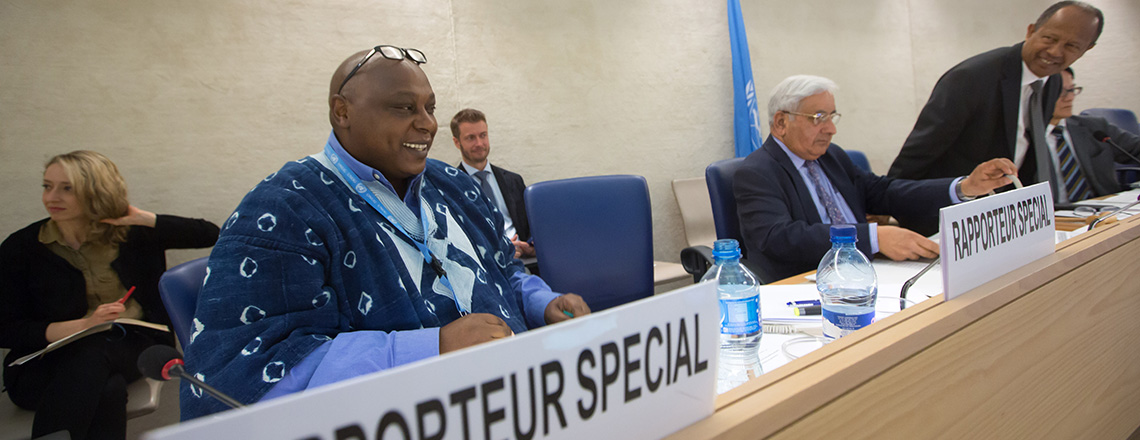
In front of the Human Rights council in its 32nd session, the Saudi government represented by its delegation repeated its elusive speech evading its responsibilities in admitting the reality and protecting Human Rights.
The delegation responded in its statement (17 July 2016) to the report of the special rapporteur concerned in the freedom of peaceful assembly and association Maina Kiai, who saw that Saudi Arabia is an example of exercising religious and political fundamentalism, in the chapters 47 and 57 of his report.
The delegation considered that the report deviated into trying to draw a picture of Saudi Arabia that is different from reality and does not respect its religious and cultural exclusiveness, and that the report got its information from in-trustful resources.
The statement claimed that those who come to Saudi Arabia come to work and that they are committed into abiding by the country’s laws, and respecting its culture and the feelings of its citizens, considering that Saudi Arabia ensures the exercise of their religious rituals in their private places without any harassment.
But the reality assures that the authorities in Saudi Arabia pursuits and apprehends those who come to Saudi Arabia because of their exercising of their rituals, like apprehending christians in September 2014 for holding prayers inside their houses, it also confiscated their religious books.
The Saudi government also has a long and accumulating record in targeting citizens that are different from the official sect, one of many examples is sentencing Shiite citizen Zoheir Bou Saleh for two months of Jail and lashing him 60 lashes in July 2015 for holding a congregational prayer at his house in Al-Khobar city east of Saudi Arabia.
Concerning the freedoms of opinion and speech, the delegacy considered that it is ensured as long as it doesn’t offend the general order in the country or the law, and it assured that Saudi Arabia ensures these freedoms in the frame of international laws especially the universal declaration of Human Rights, article 29 appendix 2, and the international covenant for political and civil rights article 19, it also pointed out that the kingdom’s legislations does not hold any kind of discrimination.
These statements contradict with the Saudi authorities’ pursuit after individuals for exercising their rights, like when the authorities apprehended writers like Zoheir Katbi and Zakareya Al Safwan, and poets like Ashraf Fayyad and Adel Al-Labbad for expressing their opinions.
The delegacy concluded that any attempt to disfigure the image of the kingdom without considering culture and religion is an interference in the country’s internal affairs and is not acceptable.
The European Saudi organisation for human rights assures the contradiction of the Saudi governmental delegacy’s statement with the reality inside Saudi Arabia, and that the delegacy’s disapproval to what has been noted, in the report of the special rapporteur for the freedoms of free assembly and association, is not based on objective facts, whereas various reports that assures what came in the special rapporteur’s report are abundant.
We remind the Saudi government of the presence of a request made by the special rapporteur Miana Kiai since October 30, 2013, to visit Saudi Arabia, and that if it claims that the rapporteur “deviated into drawing a false image” of Saudi Arabia, and that he relied on “in-trustful resources”, then it is responsible now to stop ignoring the visit request that was applied 3 years ago.
